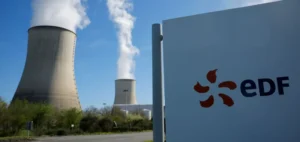The banking giant BNP Paribas, regularly attacked by NGOs for its financing of the fossil fuel industry, updated its climate policy on Thursday, announcing in particular the end of “all financing dedicated to the development of new gas fields”, according to a statement.
This policy contrasts with the practice of recent years, during which it has regularly participated in the financing of new projects. However, it does not refrain from financing companies developing new fields, as long as the money is not directly allocated to this type of project.
On oil, the bank announces “the end of financing dedicated to the development of new oil fields, regardless of the financing terms”. This is the formalization of a practice already in place as the group had stated in January that it had not directly financed any new oil projects since 2016.
However, as with gas, the bank continues to support companies that can develop new fields, without directly financing the project. BNP Paribas is also planning to “phase out” financing to players specializing in oil exploration and production that do not make the transition, as well as “reducing the share of generalist loans attributable to oil exploration and production”.
These commitments stem from the previously stated goal of seeking to cut its financing to the oil extraction and production sector by a factor of five by 2030. These “welcome” measures remain however “largely insufficient” compared to what is expected from the banking sector to limit global warming to 1.5°C compared to the pre-industrial era, reacted in a statement Lucie Pinson, director of the NGO Reclaim FinanceBNP Paribas to follow through on its commitment by demanding that its clients stop developing projects that it no longer intends to finance directly.
Environmental NGOs OxfamIn a joint press release, BNP, Notre Affaire A Tous and Friends of the Earth, which had taken BNP to court in early February for failing to meet its duty of care with regard to global warming, also denounced “measures that are too weak to meet a clear scientific requirement” and promised to be present at the bank’s general meeting the following week.
BNP Paribas, which made a record net profit of €4.4 billion in the first quarter, has set targets to reduce the emissions intensity of its steel (-25% by 2030), aluminum (-10%) and cement (-24%) businesses, i.e. the volume of CO2 per ton of material produced, compared to 2021 or 2022. The group had previously defined commitments for the oil and gas, power generation and automotive sectors.






















